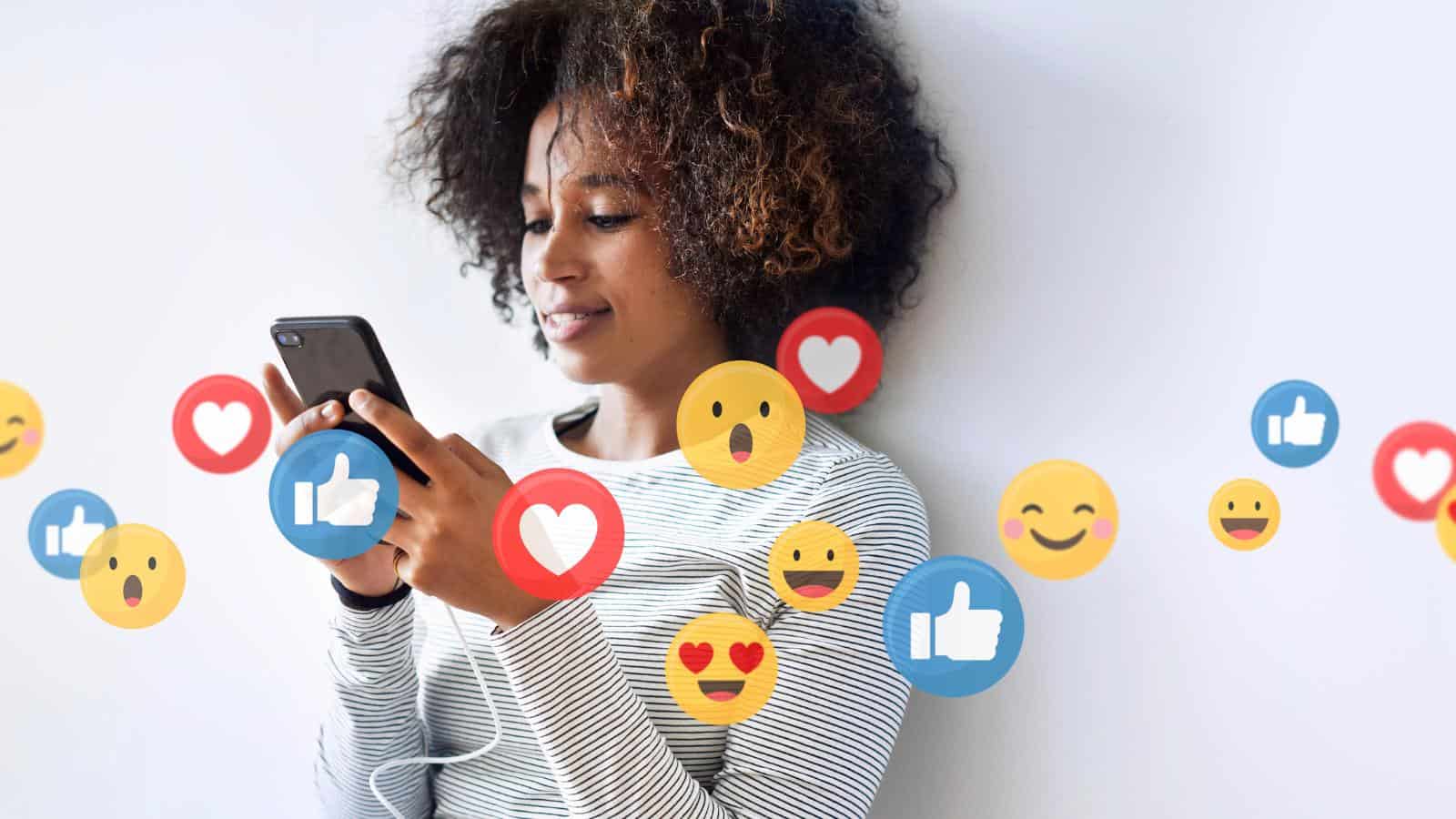There’s the saying, ‘don’t yuck my yum,’ but some things are just plain weird – no matter which way you slice it. Nevertheless, here are 65 weird things that society still accepts as completely normal.
Expressing Love for Someone With Junk Food

Society has normalized the idea that celebrating special occasions with junk food is a way to show love and care. That said, this habit can lead to long-term health problems such as obesity, diabetes, and heart diseases. Today, it’s important to find healthier ways to express love, such as cooking a nutritious meal or engaging in physical activities together.
Drinking Energy Drinks

Energy drinks have become a popular beverage choice for those looking for a quick boost of energy. However, these drinks are high in caffeine, sugar, and other artificial ingredients that can have negative effects on the body (including heart palpitations, insomnia, and dehydration).
Over-Medication

The overuse of medication has become a normalized practice in our society, with many people turning to pills as a quick fix for every ailment. However, this can lead to a variety of negative consequences, including addiction, dependence, and even death in some cases. So try to explore alternative options and only take medication when absolutely necessary.
Sitting All Day at Work and Home

With the rise of technology, many of us find ourselves sitting for extended periods of time throughout the day, both at work and home. Yet this sedentary lifestyle can have negative effects on our health, including an increased risk of obesity, heart disease, and other chronic illnesses.
Watching 6+ Hours of News a Day

While staying informed about current events is important, watching excessive amounts of news can lead to feelings of anxiety, stress, and even depression. It’s important to find a balance between staying informed and taking care of our mental health.
For Profit Healthcare

The healthcare industry has become a for-profit business in many countries, which means that services are often centered around profitability rather than patient needs. This can lead to unequal access to healthcare and a lack of attention to preventative care.
Buy Now, Pay Later

The rise of buy now, pay later options has made it easier than ever to purchase items we can’t afford. However, this can lead to increased debt and financial stress in the long run so it’s crucial to practice responsible spending and only purchase items that you can afford to pay for upfront.
Asking People Personal Questions

Asking personal questions about someone’s relationship or family plans has become a normalized practice in many social situations. However, this can be insensitive and uncomfortable for those who may be struggling with infertility, relationship issues, or other personal challenges.
Gut Problems Such as Bloating

Many people experience gut problems such as bloating, which can be caused by a variety of factors including diet, stress, and medical conditions. While it may seem like a minor inconvenience, gut problems can have a significant impact on our overall health and well-being.

Social media platforms like Twitter have become a ubiquitous part of our lives, allowing us to connect with others and share information instantly. However, excessive use of social media can lead to negative consequences so users should always try to find a healthy balance when using social media.
Needing Food Stamps While Fully Employed

Despite working full time, many people still struggle to make ends meet due to low wages. This can lead to financial stress or food insecurity, so we should all advocate for fair wages and a living wage for our workforce.
To Work Until You’re Grey and Old

The idea of working until retirement age has become an accepted practice in our society. However, this can lead to burnout, stress, and a lack of work-life balance. It’s important to prioritize rest, relaxation, and other meaningful activities outside of work.
Eating ~20g of Protein per Day

Protein is an essential macronutrient, but many people consume inadequate amounts in their diets. To avoid muscle loss, fatigue, or even weakened immune function, try to prioritize a healthy, balanced diet.
The “Dad Bod”

The term “dad bod” has become a popular way to describe a physique that is neither fit nor overweight. However, this perpetuates unhealthy body image standards and can make people deprioritize exercise and physical health.
Everything Revolving Around Food & Booze

Many social situations center around food and alcohol. While it’s great to enjoy these indulgences in moderation, excessive consumption can keep you from achieving balance in your day-to-day diet.
Feeling Low Energy

Many people experience low energy levels, which can be caused by a variety of factors including poor sleep, stress, and unhealthy diet and lifestyle habits. While it may seem like a minor inconvenience, low energy can have a significant impact on our overall quality of life. So make sure to identify – and address – the root cause of your ongoing low energy.
Eating Fake Food All Day Long

Processed, artificial foods have become a normalized part of many people’s diets. However, these foods lack most nutrients and can trigger an increased risk of obesity, heart disease, and other chronic illnesses.
Ignoring Homeless People on the Street

Homelessness and poverty are significant issues in many communities, yet many people simply ignore those in need on the streets. It’s important to recognize the humanity of those in need and to seek out ways to support and uplift them.
Driving Short Distances Instead of Walking

In today’s fast-paced world, many people prioritize convenience over physical activity. However, simply choosing movement and physical activity in your daily routines, can bring all sorts of positive benefits.
Looking Down at Your Phone While You’re Talking

In today’s technology-driven world, many people have become addicted to their phones, often checking them even during social interactions. That said, this behavior can be disrespectful and ultimately hinder authentic human connection.
Accruing College Debt Yet Struggling to Find Employment

Higher education has become increasingly expensive, and many graduate with significant student debt. Struggling with hefty loans can then lead to financial stress. When coupled with limited job opportunities, this becomes a recipe for disaster and a key means of perpetuating systemic inequality.
Living Near Endless Parking Lots and Strip Malls

Urban sprawl has become a common way of city planning in many areas, but it often results in an environment dominated by parking lots and strip malls rather than natural spaces and walkable streets.
This can lead to negative consequences for the population’s physical and mental health while also contributing to environmental destruction.
Heedless Alcohol Consumption

Alcohol has become a popular way to socialize and unwind in many societies. However, excessive alcohol consumption can lead to addiction, liver disease, and increased risk of accidents and violence.
Steady Consumption of Harmful Seed Oils

Seed oils, such as canola and soybean oil, have become an accepted part of many processed (and packaged) foods. This is terrible, as these oils can contribute to inflammation and chronic illnesses – so try to prioritize whole, natural foods and avoid processed artificial products where you can.
Eat This, Not That adds, “Sadly, not everything that comes from a vegetable is a health food. Partially hydrogenated vegetable oil can raise bad cholesterol and increase your risk for heart disease.”
Bringing Others Down to Win in Life

The idea of competition – and winning at all costs – has become normalized in many areas of life, yet it perpetuates a culture of aggression and hostility. Instead, try to cultivate a sense of empathy and cooperation by recognizing that everyone’s success is interconnected.
Being Glued to Our Phones During Live Concerts

Smartphones have become a crucial part of live events, with many people recording and sharing their experiences in real time. However, this behavior can be distracting and disrespectful to both the performers and fellow audience members.
Earrings in Newborns

Piercing a newborn’s ears has become a common practice in some cultures, but it can lead to pain or infection for the infant. It’s important to prioritize the health and well-being of the newborn and wait until they are old enough to make the decision for themselves.
Excessive Smoking

Despite the well-known negative health consequences, smoking has remained a popular practice in many societies. Recognizing the significant health risks associated with smoking and seeking out support are the best place to start when trying to quit.
Sacrificing Health for a Job

In today’s competitive job market, many people prioritize their career over their health. However, this can lead to burnout, stress, and a lack of work-life balance. No matter the job, make sure to take care of your physical and mental health, even if it means making sacrifices in your professional life.
Asking “What Do You Do?”

The question “What do you do?” has become a common way to start conversations and establish social hierarchies. It can be exclusionary and dismissive for those who have nontraditional careers or remain unemployed. So keep this in mind and try to find more inclusive and thoughtful ways to engage with others.
Believing Your Government Has Your Best Interests at Heart

Many people trust their governments to act in their best interests. However, this can lead to a lack of accountability and perpetuate systemic inequality and oppression. Where needed, question authority and demand transparency from the government.
Heightened Sugar Consumption

Sugar has become a ubiquitous part of our diets, and remains present in many processed and artificial foods. However, excessive sugar consumption can lead to obesity, heart disease, and other chronic illnesses.
8 Hour Work Days

The 8-hour work day has become a normalized part of our work culture, but it can lead to burnout, stress, and a lack of work-life balance. If needed, try to advocate for more flexible and equitable work policies that prioritize employee well-being.
Commercials for Pharmaceuticals

Pharmaceutical commercials have become an accepted part of our media landscape yet these commercials can be misleading and ultimately contribute to over-medication. It’s important to approach healthcare with a critical eye and seek out unbiased medical advice.
Unsolicited Criticism

Giving and receiving criticism has become common in many social and professional situations. However, unsolicited criticism can be hurtful and unproductive, as well as contribute to a toxic environment. Try to approach criticism with empathy and thoughtfulness, and only offer it when it is invited or necessary.
Eating Meat Produced in Factory Farms

Factory farming has become an easy way to produce meat for consumption but it almost always contributes to environmental destruction and animal cruelty. Opt instead for sustainable, ethical food production practices.
Staying Up Late

Staying up late has become normalized, often as a way to be productive or engage in social activities. Nevertheless, it can negatively impact our physical and mental health, by decreasing productivity and increasing the risk of chronic illness.
Eating Well emphasizes, “You know that falling short of sleep is a major no-no, but why—what’s the big deal? According to the National Heart, Lung, and Blood Institute (NHLBI), not getting enough shut-eye can impact a whole slew of things. For starters, it can compromise your immune system, as well as your judgment and ability to make decisions—which can result in making mistakes or being injured.”
Celebrity Worship

Our culture often places celebrities on pedestals, treating them as if they are more important than the average person. Fans obsess over their lives, scrutinize their appearances, and emulate their behaviors, despite celebrities being human beings with their own flaws and struggles.
Black Friday Stampedes

Black Friday, the day after Thanksgiving, is notorious for bargain-hunting frenzies that can lead to dangerous stampedes and conflicts among shoppers. Many seem to accept this consumer-driven chaos as normal, even though it can result in injuries and demonstrate a lack of empathy.
Valuing Appearance Over Character

Our world tends to prioritize physical appearance, often overlooking a person’s character, achievements, and talents. This emphasis on looks can lead to negative self-image, unhealthy habits, and a culture where superficial attributes are valued more than kindness, intelligence, and integrity.
Dangerous Diet Culture

The diet industry profits from promoting unrealistic beauty standards and perpetuating the idea that weight loss is the key to happiness. Society has popularized this focus on dieting, despite the fact that it can encourage unhealthy relationships with food and contribute to body dissatisfaction.
Expensive Weddings

Many couples spend exorbitant amounts of money on lavish weddings, which most people often accept as normal. This can lead to financial strain and stress, overshadowing the true meaning of the occasion: the celebration of love and commitment between two people.
Overworking and Burnout

We often glorify overworking and pushing ourselves to the point of burnout, equating it with dedication and success. This can create a toxic work culture where self-care and work-life balance are neglected.
Publicizing Your Personal Life on Social Media

The widespread use of social media has normalized sharing intimate details of one’s personal life with a wide audience. Society has become accepting of this oversharing culture, despite the potential negative effects on privacy, mental health, and relationships.
Tabloid Culture

Tabloid journalism thrives on sensationalism, spreading gossip and rumors about public figures, often invading their privacy. Many have come to accept this as a form of entertainment, even though it can be damaging to the individuals featured and perpetuate misinformation.
Planned Obsolescence

Many companies design products with a limited lifespan or make them difficult to repair, so they can encourage consumers to regularly buy replacements. People have grown to accept this practice, known as planned obsolescence, despite its environmental and financial implications.
Ageism

Society often treats aging as something to be feared or avoided, perpetuating stereotypes about older individuals as frail, forgetful, or irrelevant. This ageist mindset is widely accepted, even though it fosters discrimination and overlooks the valuable contributions (and wisdom) of older generations.
Reality TV Exploitation

Reality TV shows often capitalize on their participant’s personal dramas and conflicts, blurring the line between entertainment and exploitation. Viewers have grown to accept this voyeuristic form of entertainment, even though it can be emotionally damaging for those involved.
Extreme Cosmetic Procedures

The pursuit of physical perfection has led to the normalization of extreme cosmetic procedures, with some individuals undergoing multiple surgeries to achieve a specific look. People often accept this quest for an unattainable standard, despite the potential risks and ethical concerns.
Live Science says, “Why do humans feel the need to alter their bodies with surgeries or permanent ornamentations, like tattoos and piercings? Scientists think the answer is pretty simple: People think plastic surgery and other cosmetic procedures will make them look better and, therefore, feel better.”
Child Beauty Pageants

Child beauty pageants involve young children being dressed and made up to resemble adults, often with a heavy focus on appearance. Our modern acceptance of this practice raises concerns about the potential impact on children’s self-esteem and understanding of self-worth.
Fast Fashion

Fast fashion is built on the premise of cheap, disposable clothing that caters to ever-changing trends. Consumers have come to accept this unsustainable practice, despite the environmental harm and exploitation of workers that often accompanies it.
FOMO (Fear of Missing Out)

FOMO, or the fear of missing out, has become a common experience in today’s hyperconnected world. Society accepts this anxiety-driven phenomenon as normal, even though it can lead to negative mental health outcomes and an unhealthy preoccupation with the lives of others.
Paparazzi Harassment

Celebrities often face intrusive and relentless harassment from the paparazzi who invade their privacy to capture candid photos. Readers have grown to accept this behavior as part of the price of fame, even though it can cause distress and endanger the safety of those targeted.
Public Shaming on Social Media

Social media platforms have made it easier for people to publicly shame or ridicule others, often leading to widespread humiliation and emotional distress. People have come to accept this practice as a form of justice or entertainment, despite its potential harm.
Excessive Advertising

From billboards to pop-up ads, we’re constantly bombarded with advertising, promoting consumerism and materialism. This saturation of marketing messages has become common, even though it can contribute to unhealthy spending habits and unrealistic expectations.
Beauty Standards Across Cultures

Our world has a history of imposing impossible beauty standards on different cultures, often prioritizing Western ideals and diminishing the value of diverse aesthetics. This practice has become widely accepted, even though it can lead to cultural erasure and perpetuate harmful stereotypes.
Harmful Hazing Rituals

Hazing rituals, often associated with college fraternities, sororities, and sports teams, can involve dangerous or humiliating activities. Students (and staff) have long accepted these practices as rites of passage, despite their potential for harm and the ethical concerns they raise.
Cramming Into Public Transportation

During rush hour, people often cram into overcrowded buses or trains, sacrificing personal space and comfort for their daily commute. People have come to accept this as a necessary inconvenience, despite the impact on their well-being and quality of life.
Gratuity Culture

In some countries, tipping is an accepted social norm, even though it can be confusing and put pressure on customers to supplement workers’ wages. Our world’s acceptance of gratuity culture allows for the continuation of a flawed system that often disadvantages service industry employees.
Binge-Watching TV Shows

The rise of streaming platforms has popularized binge-watching TV shows, with viewers consuming hours of content in a single sitting. This generation has come to accept this practice as normal entertainment, even though it can contribute to sedentary behavior and affect mental health.
Consumerism and Materialism

Today, we often encourage the pursuit of material possessions and consumerism as markers of success and happiness. This materialism can lead to unhealthy spending habits, environmental degradation, and a lack of focus on personal growth and fulfillment.
Online Dating App Superficiality

With the popularity of online dating apps, the process of selecting potential partners has become increasingly superficial, often based on photos and brief bios. Most people now accept this superficial approach, even though it can reduce meaningful connection and foster shallow relationships.
Ghosting in Relationships

Ghosting, the act of suddenly cutting off communication with someone without explanation, has become increasingly common in the digital age. Young people have grown to accept this behavior as a normal part of dating, even though it can cause emotional harm and confusion.
Obsession with Youthfulness

Many often idolize youth and obsess over maintaining a youthful appearance. As a result, we’ve seen a huge boom in the anti-aging industry. This acceptance of an unrealistic standard can lead to a harmful fixation on superficial qualities and age-related stigmatization.
Constant Connectivity

In today’s digital world, people are expected to be constantly connected to their devices, often leading to an unhealthy dependence on technology. We’ve normalized this constant connectivity, despite its potential impact on mental health, relationships, and overall well-being.
READ MORE – BOOMERS HAVE SPOKEN: 18 TRADITIONS THEY WANT TO UPHOLD BUT GEN Z SAYS “NEED TO GO”

As boomers fondly clutch onto practices that evoke nostalgia, Gen Z is at the next counter, eagerly trading in the old for a dash of modern sparkle. From handwritten notes to digital memos, from piggy banks to digital wallets—the dance between ‘then’ and ‘now’ has never been more lively. Join us as we explore 18 traditions that boomers want to uphold but Gen Z says need to go.
BOOMERS HAVE SPOKEN: 18 TRADITIONS THEY WANT TO UPHOLD BUT GEN Z SAYS “NEED TO GO”
16 THINGS MEN KNOW (BUT WILL NEVER REVEAL TO THE LADIES)

Have you ever wondered what men really think or do? Then look no further. A recent internet survey asked, “What are some ‘guy secrets’ girls don’t know about?” Here are the top 16 answers:
16 THINGS MEN KNOW (BUT WILL NEVER REVEAL TO THE LADIES)
18 BABY BOOMER SLANG PHRASES THAT MAKE MILLENNIALS SCRATCH THEIR HEADS

While it’s easy for younger generations to feel like they’re steeped in slang, Boomers know that some of the best phrases have been passed down for years. Think you’re hip to all of them? Read on for 18 popular phrases of Baby Boomer slang.
18 BABY BOOMER SLANG PHRASES THAT MAKE MILLENNIALS SCRATCH THEIR HEADS
20 THINGS OLD PEOPLE LOVE THAT THE REST OF US DON’T UNDERSTAND

Different generations enjoy different things, but have you ever seen something an old person loves and thought to yourself, why? A recent internet survey asked, “What is something that old people love that you don’t understand?” Here are the top 20 answers.
20 THINGS OLD PEOPLE LOVE THAT THE REST OF US DON’T UNDERSTAND
20 THINGS WE DID WHEN WE WERE YOUNG THAT WE REGRET NOW

It’s easy to say hindsight is 20/20, but what advice would you really give your younger self? Here are 20 things that most people did when they were young that they regret today.
